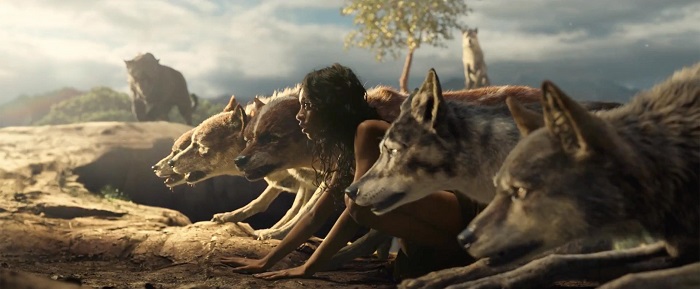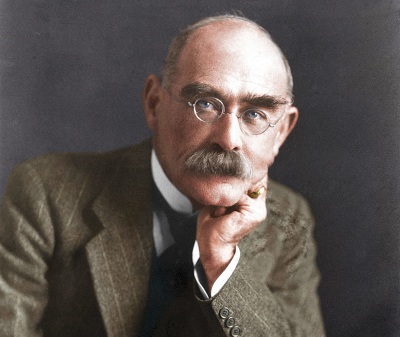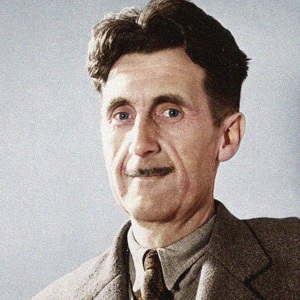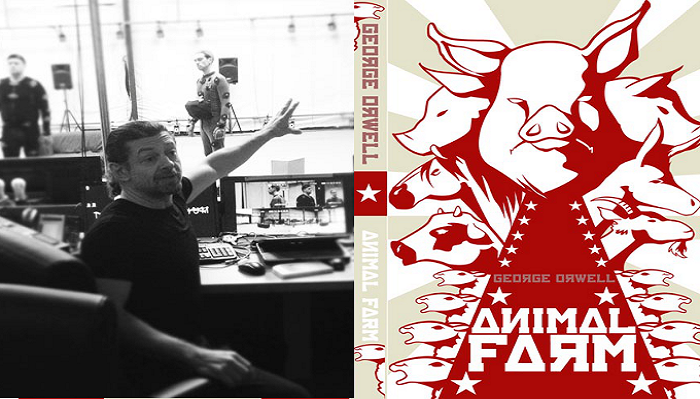Andy Serkis’ recent bold adaptation of Mowgli set a benchmark that flies in the face of filmmakers who have long been playing safe in creating content appropriate for kids, thereby eroding the baseline essence and profundity of the original novels.

Why do storytellers feel obligated to dilute and sanitise content in order to fit in the bracket of family-friendly and clean entertainment? Have we collectively regressed to infantilism in our bid to mollycoddle kids? Are we undermining kids’ psychology by serving them a saccharin diet of simplistic stories that were originally meant to be profound and thought-provoking?
 Deducing from Serkis’ body of work, one can see a pattern insofar as the themes of the stories stand. It’s notable that the recent movies in Serkis’ oeuvre are adaptations of stories that were penned by authors born in India. Although written during the times of British Raj, they stand spookily relevant in the Indian scenarios to this day. Born in India’s artistic Acropolis, J.J school of Arts located in Mumbai, Hindi-speaking Rudyard Kipling grew up around Indian idioms in his boyhood days. It’s only when he is grudgingly ferried to an English boarding school that his anglicisation prepares him for authoring the world-class legends like Mowgli and Kim. Having bagged the first ever highest honour for English Literature (Nobel Prize), his characters remain deeply entrenched in Indian cultural moorings as we occasionally get to feast upon many Hindi words in his works.
Deducing from Serkis’ body of work, one can see a pattern insofar as the themes of the stories stand. It’s notable that the recent movies in Serkis’ oeuvre are adaptations of stories that were penned by authors born in India. Although written during the times of British Raj, they stand spookily relevant in the Indian scenarios to this day. Born in India’s artistic Acropolis, J.J school of Arts located in Mumbai, Hindi-speaking Rudyard Kipling grew up around Indian idioms in his boyhood days. It’s only when he is grudgingly ferried to an English boarding school that his anglicisation prepares him for authoring the world-class legends like Mowgli and Kim. Having bagged the first ever highest honour for English Literature (Nobel Prize), his characters remain deeply entrenched in Indian cultural moorings as we occasionally get to feast upon many Hindi words in his works.
 Another author, George Orwell, better known for his dystopian magnum opus 1984, which warns us about the threat of totalitarianism and different possible ways in which governments can oppress citizens, was born in India in the Bihar region of Motihari. His book, Animal Farm’s adaptation by Serkis, which is in the works, is a classic indictment of Marxist ideology in form of allegorical social commentary on the Stalinist era. The story is centred on the rebellion of farm animals against humans, who own their farm, adopt the rule of equality in the beginning only to later go rogue and adopt the same sinister policies that their movement had previously opposed.
Another author, George Orwell, better known for his dystopian magnum opus 1984, which warns us about the threat of totalitarianism and different possible ways in which governments can oppress citizens, was born in India in the Bihar region of Motihari. His book, Animal Farm’s adaptation by Serkis, which is in the works, is a classic indictment of Marxist ideology in form of allegorical social commentary on the Stalinist era. The story is centred on the rebellion of farm animals against humans, who own their farm, adopt the rule of equality in the beginning only to later go rogue and adopt the same sinister policies that their movement had previously opposed.
In the early days of the 90’s era, Cartoon network had oodles and oodles of content that would never see the light of day, had the stories been pitched in this day and age. The paradigm has shifted in favour of in loco parentis thematics where content is skinned of its essence, washed down with censorship and put to dry before it’s sufficiently suitable for consumption.
 In the era of overly regulated adaptations of legends, Andrew Serkis is truly a breath of fresh air owing to his quest for portraying them as they were meant to be in spirit.
In the era of overly regulated adaptations of legends, Andrew Serkis is truly a breath of fresh air owing to his quest for portraying them as they were meant to be in spirit.
Orwell’s intellectual bullets in works like 1984 and Animal Farm have long been puncturing holes in widely-held beliefs and ideologies. His polemics and essays are regarded as great works of scholarship and literature.
Contrary to what people might think about it being a children’s book, Animal Farm is actually a mature and thought-provoking novel. We hope Serkis continues the tradition and pulls no punches in portraying even the darker aspects that capture the essence of the story. Ahoy to Serkis movies and the fillip they add to the spirit of mature cinema!
